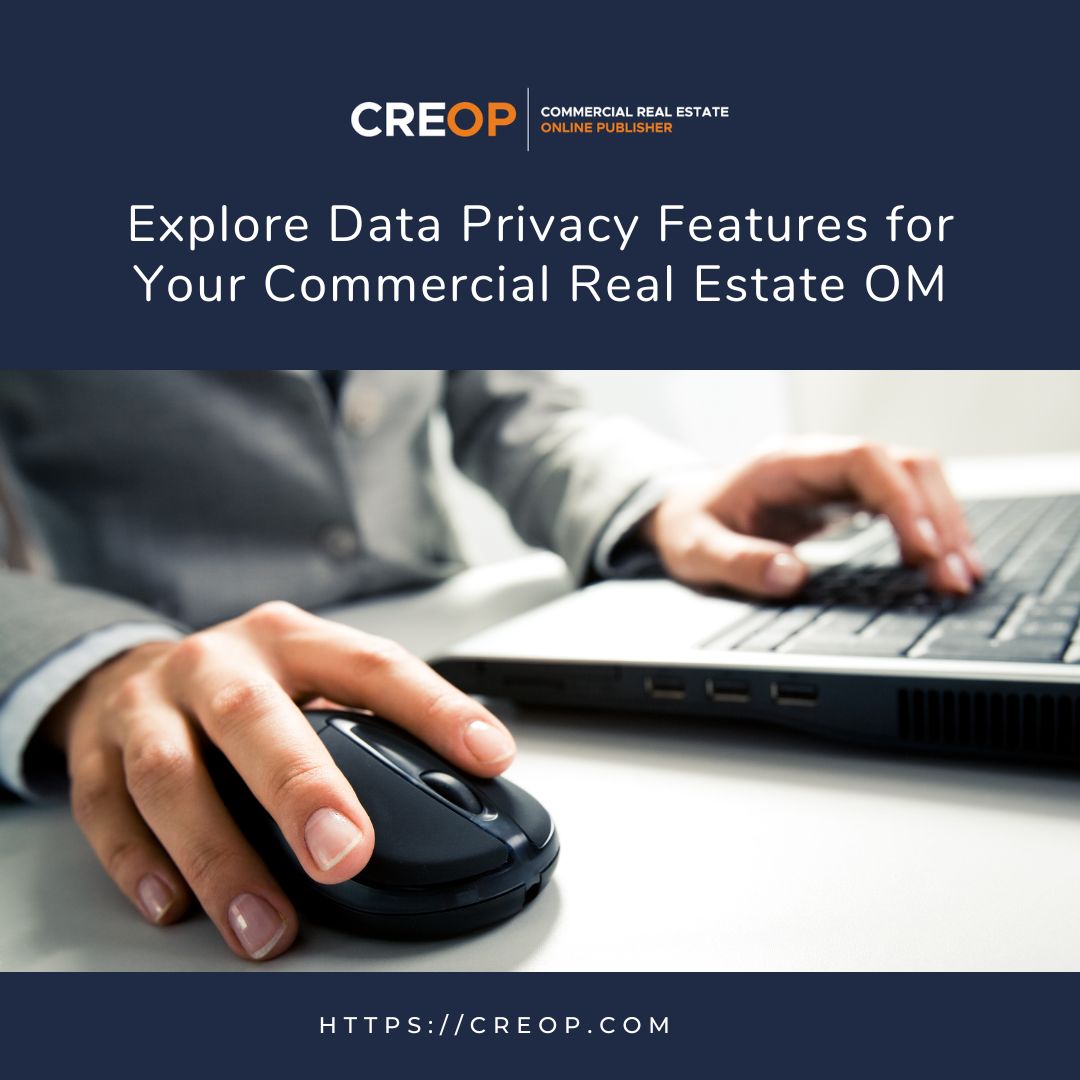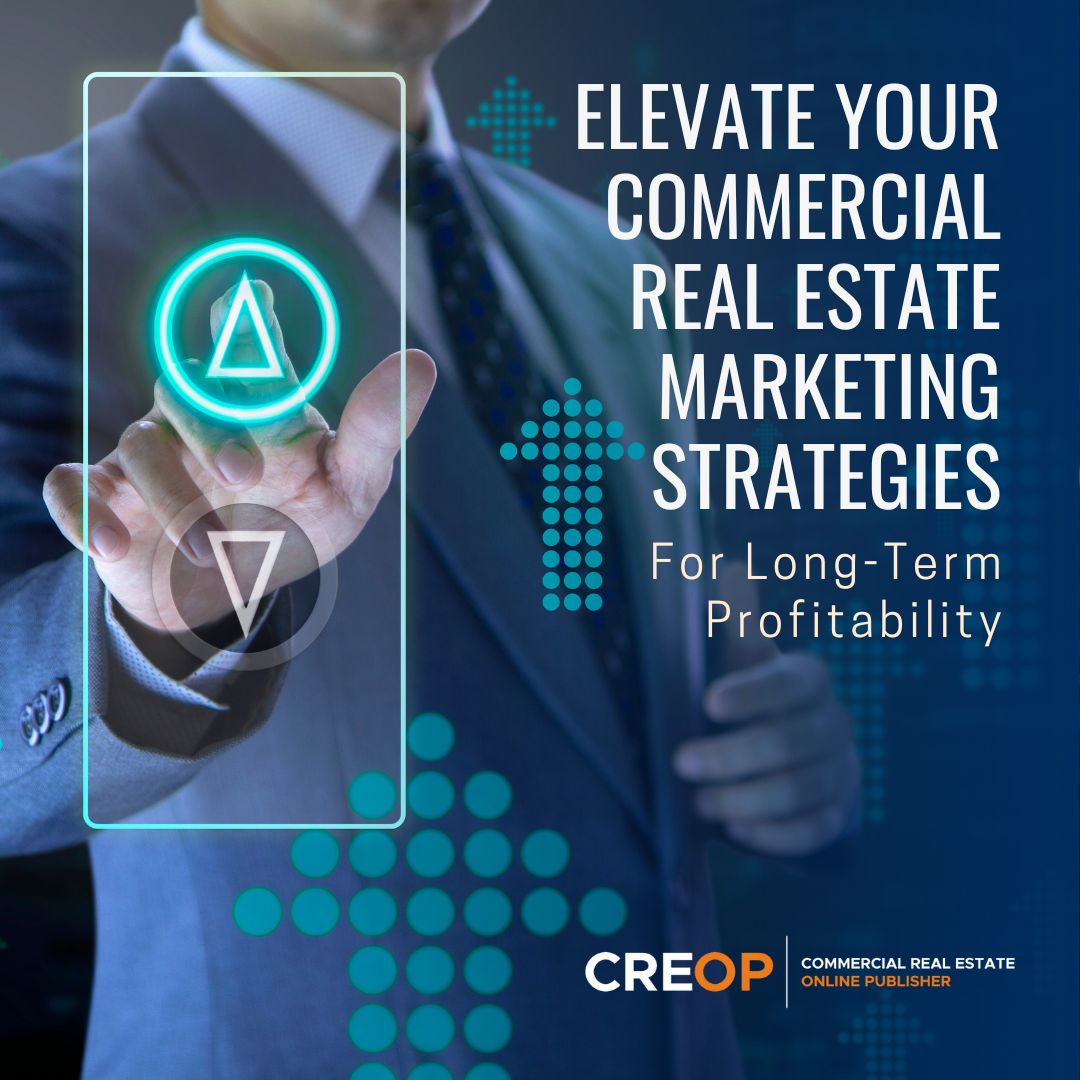In the fast-paced world of commercial real estate, protecting sensitive data’s privacy and security is paramount. With the advent of technology, commercial real estate professionals have turned to Customer Relationship Management (CRM) systems to streamline their operations. However, choosing the right CRM with robust data privacy features becomes crucial to safeguarding confidential information. This article will explore the key data privacy features to consider when selecting a CRM for your commercial real estate OM.
Encryption and Secure Data Storage
Data encryption serves as a vital safeguard against unauthorized access. Look for a CRM that employs strong encryption protocols, ensuring that data is protected both during transit and at rest. Additionally, opt for a CRM that stores data in secure servers or cloud platforms with stringent security rules, like firewalls or intrusion detection systems.
Access Controls and User Permissions
To maintain data privacy, it is essential to have granular control over who can access and modify information within the CRM. A robust CRM should offer customizable user permissions, allowing you to assign roles and restrict access based on user responsibilities. This feature ensures sensitive data, like offering memorandum details, remains accessible only to authorized individuals.
In addition to protecting sensitive information, a robust CRM should also allow for the customization of user permissions and access controls, ensuring that only authorized individuals can view or modify data, including confidential details such as the CRE marketing brochure.
Audit Trails and Activity Logs
A comprehensive audit trail and activity logs within your CRM are crucial for monitoring data access and changes. This feature enables you to track user activities, including logins, modifications, and document uploads. By maintaining an audit trail, you can identify any unauthorized access attempts or suspicious behavior, ensuring the integrity of your offering memorandum data.
Secure Collaboration and Document Management
In commercial real estate, collaboration is key. However, when it comes to sharing sensitive documents like offering memorandums, you need a CRM that offers secure collaboration features. Look for a CRM that provides encrypted document sharing, version control, and the ability to set access permissions on a per-document basis. This selectiveness ensures confidential information is shared only with intended recipients.
Data Backups and Disaster Recovery
Unforeseen events like data loss or system failures can jeopardize your commercial real estate offering memorandum data. A reliable CRM should offer regular data backups and a robust disaster recovery plan. Choosing a CRM provider that prioritizes data redundancy and has contingency measures in place to restore your data promptly is crucial.
Compliance with Data Privacy Regulations
As privacy regulations continue to evolve globally, it is imperative to choose a CRM that complies with relevant data privacy rules, like the General Data Protection Regulation or the California Consumer Privacy Act. Ensure the CRM provider has implemented necessary measures to meet regulatory requirements, such as anonymization, data access controls, and data retention policies.
Two-Factor Authentication (2FA) and Single Sign-On (SSO)
Implementing additional layers of security, such as Two-Factor Authentication (2FA) and Single Sign-On (SSO), can significantly enhance the protection of your CRM system. 2FA adds an extra step during login, requiring a second form of verification, such as a unique code sent to a mobile device. SSO allows users to access multiple systems with a single set of credentials, minimizing the risk of weak passwords.
The Rise of Cyber Threats in Commercial Real Estate
In today’s digital age, commercial real estate businesses are increasingly becoming targets for cybercriminals. The lure of valuable data such as client details, property pricing, financial records, and internal communications is hard to resist. There’s been a surge in phishing attacks, ransomware incidents, and other cyber threats. Thus, ensuring that the CRM system is impenetrable and that the data within it remains safe is not just a preference—it’s a necessity.
Costs of Data Breaches
A data breach is not only about the immediate financial loss but also the long-term reputational damage. For commercial real estate professionals, reputation is everything. Once the trust is broken, it takes years to rebuild, if at all. The financial implications, legal fees, regulatory fines, and the loss of client trust can cripple a business. Investing in a CRM with top-tier data privacy features is far less expensive than the potential cost of a data breach.
Continuous Training and Updates
Even with the most secure CRM systems, human error remains a significant vulnerability. It’s crucial for commercial real estate professionals and their teams to receive regular training on best practices. The CRM provider should also be committed to continually updating and refining its software, ensuring it remains resilient against evolving cyber threats.
Integration with Other Systems
Modern businesses utilize a plethora of software applications. Your chosen CRM should be able to integrate seamlessly with other essential tools without compromising data security. Whether it’s accounting software, email marketing platforms, or virtual tour applications, each connection point is a potential vulnerability. A good CRM system should offer secure API integrations, ensuring data flows without exposing it to risks.
Customer Support and Crisis Management
Should a crisis occur, the response time is of the essence. A reliable CRM provider should offer 24/7 customer support to address any concerns. Additionally, they should have a dedicated crisis management team ready to jump into action in the unlikely event of a data breach or system failure. This not only helps mitigate the damage but also reinstates confidence in the system.
User-Friendly Privacy Features
Data privacy and security features are only effective if they are user-friendly. If the features are too complex, users might bypass them or use them incorrectly, leading to vulnerabilities. A good CRM system should strike a balance between robust security measures and user-friendly interfaces. Regular feedback sessions with users can help the CRM provider understand any challenges and implement solutions.
Conclusion
In the dynamic realm of commercial real estate, safeguarding sensitive data has become paramount. With escalating cyber threats and the high stakes of the industry, prioritizing data privacy is non-negotiable. Opting for a CRM solution that doesn’t merely offer basic safeguards but presents a comprehensive suite of security features is the strategic choice. This empowers commercial real estate professionals to navigate their transactions with confidence, assured that their data and reputation remain unassailable.
Selecting a CRM armed with robust data privacy features becomes an imperative shield for sensitive information within the commercial real estate landscape. This choice equips you with encryption, access controls, audit trails, secure collaboration, data backups, and adherence to privacy regulations. Elevating data privacy in your CRM selection process ensures the sanctity of your commercial real estate OM data, enhancing trust with clients and securing a competitive edge.
Reach out to CREOP today for deeper insights into fortifying your data privacy strategies!




